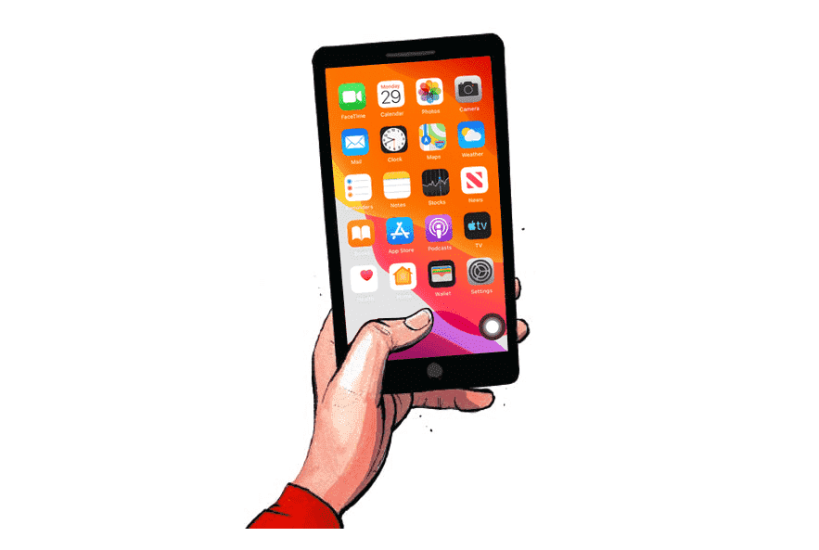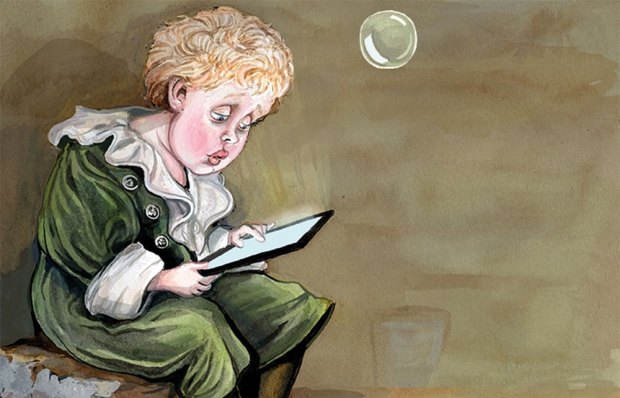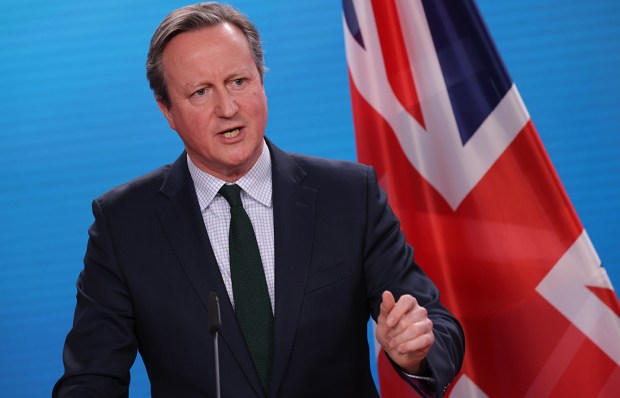Generation Z were the first to grow up attached to smartphones. They spent their adolescence bathed in screen-light and now they’re depressed and anxious. Should we have seen it coming? Until very recently my parent friends were in determined denial. Z is the best generation that has ever lived, they said, free from prejudice and determined to recycle. I remember a piece by Caitlin Moran in which she insisted that her children were far more noble and caring than her contemporaries.
Well, those optimistic days are over. The stats are now too stark. We daren’t take the kids’ phones away – we fear their rage – but we mothers huddle in the pub and brood. What’s gone wrong? Is it Instagram? TikTok? Is it the influencers and their unattainable lives? Are the kids being groomed, are they wilting from lack of outdoor play? I haven’t yet dared air to my fellow mums my additional fear: that social media is stealing their souls. It came to me as I wasted my weekend on Instagram scrolling sideways through the various stories: an Israeli child hostage; the perfect pumpkin spice latte; bodies in the rubble in Gaza; try this simple cure for neck pain; corpses; old school reunions; severed limbs; cake.
It’s not just the young who get their news through social media. And news on social media, in a time of war, means a drip-feed of horror on every platform, mixed in with friends and ads and selfies. But what does it do to a developing brain to feed it a non-stop ticker-tape of ultraviolence cut with kittens? How does it effect a child’s emerging empathy? I don’t expect anyone has any idea.
This morning, on Facebook, a pal posted a clip of an Israeli child hostage. It made me cry. Hot on its heels, a gender reveal party and a litter of cocker spaniel puppies for sale. How will the war end? Did they want a girl? Should I buy a cocker spaniel? It’s like running a fever. I keep thinking of a J.G. Ballard book, The Atrocity Exhibition, written long before the internet, which describes the way mass media invades and splinters the mind of the individual. ‘In the post-Warhol era,’ wrote Ballard, ‘a single gesture such as uncrossing one’s legs will have more significance than all the pages in War and Peace.’ Critics were confused, thought him a pseud. Little did they know that a half century later Sharon Stone would be forever crossing and uncrossing her legs as the internet’s favourite gif.
My young cousins get their news from Snapchat, mixed in with a run of stories from their friends: dead Palestinians; a new make-up drop from Kylie Jenner; can you keep your snapstreak? The moguls who own these platforms use words from the service industry as if every user is a valued customer: the news feed is ‘curated’, ads are ‘served’, the experience ‘personalised’. But the oily language is a lie. Who requests this satanic mix? All I can say for sure is that it serves the Zuckerbergs well.
The aim of any social-media platform is to keep a user trapped for as long as possible, all the better to show you – serve you – ads. That picture of a maimed soldier or butchered whale hooks you in, but then the adrenaline needs to dissipate. This is where the cake and kittens play their part. Don’t make a cup of tea, don’t turn to the real world, instead ogle this calming video of a Victoria sponge being smeared with rainbow icing, or a small Chinese child cooking dinner on a miniature stove. I’m showing my algorithm here.
And how can it not desensitise developing minds? Like all animals, we learn through association. If you follow one image with another, repeatedly, the brain will inevitably link them. Over several months in the early 20th century, Dr Pavlov taught his poor dogs to associate the sound of a bell ringing with their dinner and thereafter the dogs drooled every time they heard a bell. As with dogs, so with people, Pavlov explained to his admirer, Lenin. You just need a few essential ingredients – sleep deprivation, isolation, stress and repetition – then you can change not just a person’s behaviour but their personality, their soul. War, handbags, cadavers, crêpes. It would be black irony if the same pictures of atrocities, the ones they post to show how much they care, in the end make the young indifferent to real-world suffering. I sometimes suspect they already have. My bike skidded out from under me the other day as I cycled home in the rain and I lay sprawled in the road just beside a pub. A group of twentysomethings standing outside turned and saw me, but they looked blank and made no move to help. Perhaps in some deep, unconscious synaptic recess they were just waiting for a cat to appear.
I’m often told when I worry about smartphones that I’m a Luddite with a medieval fear of modernity; that people like me once railed against the printing press and there’s nothing to fear. It’s true there’s always been a selection of stories and photographs in any newspaper. Back when I worked for Charles Moore’s Daily Telegraph we enjoyed putting a photo of Liz Hurley on page three. But there’s a difference in intent between a newspaper reader and a smartphone scroller. You pick up a paper in pursuit of news and in the hope of understanding it. Hurley is the reward for making it through five pars on the Budget. No one picks up their iPhone to grapple with complex geopolitical truths. We prod at them when we’re bored, like lab rats looking for treats because that’s how the new media moguls have designed them – without thought or care for the consequences.
Got something to add? Join the discussion and comment below.
Get 10 issues for just $10
Subscribe to The Spectator Australia today for the next 10 magazine issues, plus full online access, for just $10.
You might disagree with half of it, but you’ll enjoy reading all of it. Try your first month for free, then just $2 a week for the remainder of your first year.















Comments
Don't miss out
Join the conversation with other Spectator Australia readers. Subscribe to leave a comment.
SUBSCRIBEAlready a subscriber? Log in